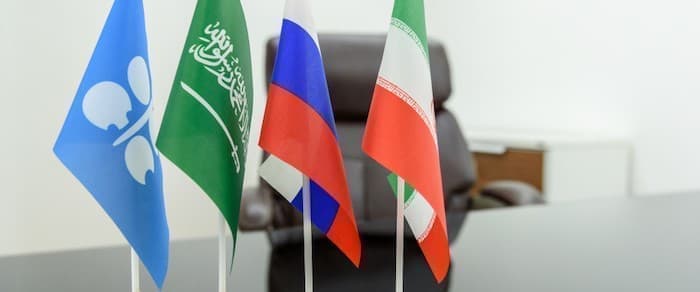Major cracks appear to be forming in the OPEC+ alliance. After several years of unprecedented cooperation between OPEC members and non-OPEC producers, the growing regional economic and power conflict between Saudi Arabia and Abu Dhabi is threatening the arrangement. While much of the analysis of the recent OPEC+ disagreement has focused on why the UAE refused to commit to the new export plan, there are other factors that have been largely overlooked. A closer look at the ongoing investments by the UAE in its upstream and downstream industry is one such example. Abu Dhabi’s national oil company ADNOC has put in place a production capacity increase that calls for a total reassessment of the underlying OPEC production baselines, which were agreed in 2018. At present Abu Dhabi is allowed to produce around 3.2 million bpd, based on the 2018 baseline, but has a capacity now of more than 3.8-4 million bpd. Looking at ongoing new projects and planned investments, production of more than 4 million bpd is possible in the coming years. The aggressive investment strategy of ADNOC means that the UAE is plenty of incentives to increase production. An extended and controlled OPEC+ export quota system would not only impact the UAE’s revenue streams but could even turn some of its multi-billion dollar investments into stranded assets in the long term.
Recently, Crown Prince Mohammed bin Zayed has been pushing an independent geopolitical and economic strategy for the UAE. After years of cooperating with Saudi Arabia on everything from OPEC policy to regional geopolitical crises, the two powers are now beginning to diverge. Former cooperation on issues such as the Yemen war and the Qatar blockade has weakened drastically. At the same time, Mohammed bin Salman has been aggressively pushing Saudi Arabia’s regional power. Saudi Arabia’s Vision 2030, the Kingdom’s economic diversification plan, has driven the crown prince to take aim on other GCC countries as he attempts to force international investors and companies to set up shop in Saudi Arabia rather than Dubai or Doha. This transformation in the relationship between Saudi Arabia and the UAE certainly played a part in the recent OPEC+ conflict.
Riyadh is also targeting the logistics industry, an industry that the UAE has long dominated, establishing itself as a regional hub for logistics and connecting EU-Asian commodity and trade flows. In the last couple of months, Saudi Arabia has become increasingly aggressive in this space. While there has no been a direct conflict in this area, it is generally assumed that there is not enough space in the region for two supra-regional maritime logistic hubs. MBZ and Dubai are clearly unimpressed with Saudi Arabia’s attempts to muscle in on the industry.
Related: Russia Is Ready To Open The Taps
Another area of discord between the two nations is the UAE’s increased cooperation with Israel. UAE-Israel cooperation in logistics, technology, defense, and agriculture, is a possible threat to Saudi Arabia’s Vision 2030 projects. By bringing Israeli tech and know-how to Abu Dhabi and Dubai, the UAE projects will compete with the Saudi Giga-Projects, such as NEOM, for international investment. In response to these moves by the UEA, Riyadh has blocked technology and products exports by the UAE that are linked to Israel.
This economic and geopolitical confrontation is normal in the Arab world and is unlikely to cause a major rift between the two nations. The current cracks will likely be mended when one of the two parties is calling for a Majlis in the Desert. MBS and MBZ have more to win from cooperation than confrontation. A breakthrough in the OPEC discussions is certainly a possibility, but first, some saber-rattling must be done. Ultimately, MBS understands that both Aramco’s and ADNOC’s future revenues are important. Both NOCs will be able to gain a lot of market share in the coming years if they play their cards right. By being flexible while not losing face, both the nations could go on to cooperate in other fields. Emirati SWFs are still a viable source of financing for major projects in Saudi Arabia, while energy-transition projects in the Emirates thrive on Saudi cooperation and cash.
By showing a strong position in international and regional media, both Crown Princes aim to boost their own positions. MBS’s strong approach towards regional economic issues is clear and will inevitably come into conflict with others. MBZ’s more aggressive regional and supra-regional power aspirations are also set out for all to see. OPEC’s infighting is a natural place for these tensions to play out. Both parties know that their long-term alliance will be key in the future. A full confrontation between the two nations would only serve as an advantage to the long list of regional adversaries for these two nations. By threatening non-compliance, Abu Dhabi is showing its willingness to confront market developments head-on. Saudi Arabia and Russia now need to understand that a Riyadh-Moscow agreement is not going to be enough to placate the other members. ADNOC is unlikely to destabilize the market by opening up its taps, but the symbolism of its resistance is important. Statements about the UAE’s willingness to leave OPEC are based purely on rumors, not on facts. Stability is key in oil and gas, being part of the discussion inside of OPEC is more valuable to the UAE than being independent. There is plenty of complexity to unpick behind the scenes, but this particular disagreement is unlikely to cause any real problems for OPEC+
By Cyril Widdershoven for Oilprice.com
More Top Reads From Oilprice.com:
- Oil Major Exodus In Iraq Creates Opportunity For China
- The Plastics Sector Is Suffering As Oil Prices Rise
- The Oil Stocks Wall Street Recommends


















